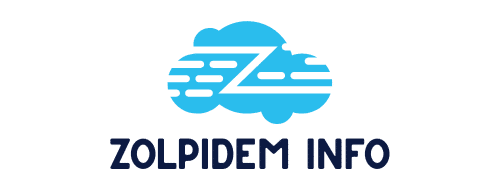What Is the Impact of AI on Ethical Decision-Making in Business?

In this digital age, the impact of artificial intelligence (AI) on business operations is increasingly profound. Fundamental to this is the role played by AI in decision-making processes. AI is not only altering how decisions are made but also raising critical questions about ethics and morality in business. This article explores the influence of AI on ethical decision-making in business, focusing on the opportunities and challenges this technology brings for organizations. We will delve into the human biases inherent in AI systems, the moral dilemmas they pose, and how businesses can navigate these complexities.
The Intersection of AI and Decision-Making in Business
Artificial Intelligence, once a concept confined to the realms of science fiction, is now an integral part of the business landscape. These systems, powered by vast amounts of data and remarkable levels of intelligence, have begun to shape the very processes through which business decisions are made.
In parallel : Elevate your a-level maths performance through online tutoring
AI systems leverage data and sophisticated algorithms to identify patterns, make predictions, and even make decisions with minimal human interference. From customer service to supply chain management, AI systems are involved in various facets of business operations. They work by processing vast volumes of data faster and more accurately than humans, thereby enhancing efficiency and productivity.
However, as AI systems grow more complex and autonomous, the question of ethical decision-making emerges. While humans have the potential to make decisions based on moral and ethical considerations, can AI systems do the same? And what implications does this have for businesses?
In parallel : Discover exceptional tree surgeon services in aberdeen
How AI Systems Reflect Human Biases
A significant aspect of ethical decision-making involves recognizing and addressing biases. This is where AI systems pose a considerable challenge. Although they are technological constructs, AI systems are not immune to biases. In fact, they often mirror the biases of their human creators.
When designing AI systems, human intelligence is used to create algorithms that interpret data and make decisions. However, these algorithms, though seemingly objective, can reflect the unconscious biases of their creators. For instance, an AI system tasked with screening job applicants could unfairly favor certain demographic groups based on the biased data it was trained on.
This not only raises ethical concerns but also carries potential legal implications for businesses. Therefore, organizations must be vigilant in identifying these biases and work towards mitigating them to ensure fair and ethical decision-making.
The Moral Dilemmas Posed by AI
Beyond biases, AI systems present a host of moral dilemmas. The increasing autonomy of these systems means they are often making decisions that have significant implications for individuals and society. How these decisions are made, and the considerations they entail, raise crucial questions about ethics and morality.
For instance, consider an AI system used in healthcare that must decide which patients receive treatment in a resource-constrained setting. How does it prioritize? Can it consider ethical principles like fairness and justice in its decisions?
These quandaries highlight the need for businesses to have robust ethical frameworks in place. Such frameworks should guide the design and deployment of AI systems, ensuring that ethical considerations are not overlooked in the quest for efficiency and automation.
The Role of Human Oversight in AI Decision-Making
Despite the complexities and challenges outlined above, AI’s role in decision-making is not necessarily a bleak one. When approached with caution and diligence, this technology can be harnessed ethically and beneficially.
One way to achieve this is through human oversight. While AI systems can process data and make decisions rapidly, human oversight ensures that these decisions align with a business’s ethical standards. This means that humans should be involved in the design, deployment, and monitoring of AI systems to ensure that ethical considerations are not sidelined.
Moreover, human oversight can help in identifying and correcting biases in AI systems. By continually interacting with these systems, humans can detect instances of biased decision-making and take corrective action. Thus, through vigilant human oversight, businesses can harness the power of AI for ethical decision-making.
Integrating Ethics into AI Systems
Ultimately, achieving ethical decision-making in AI involves integrating ethics into the systems themselves. This means going beyond mere compliance with legal regulations and actively embedding ethical principles into the design and operation of AI systems.
Businesses can do this by implementing clear ethical guidelines that govern the use of AI. These guidelines should articulate the business’s values and principles and provide a roadmap for ethical decision-making. Additionally, organizations can consider employing AI ethics officers responsible for monitoring the ethical performance of their AI systems.
Furthermore, businesses can leverage technology to promote ethics. For instance, techniques like algorithmic transparency can help businesses understand how their AI systems make decisions, thus enabling them to identify potential ethical breaches.
In sum, as AI continues to transform business operations, organizations must grapple with the ethical dilemmas it poses. By acknowledging and addressing these challenges, businesses can ensure that their use of AI aligns with their ethical commitments, thereby fostering trust and accountability in the digital age.
AI and Moral Deskilling in Business Decision-Making
Artificial Intelligence, although a powerful tool, also brings potential risks in terms of moral deskilling. This phenomenon occurs when decision makers rely heavily on AI for moral and ethical decisions, leading to a decrease in their own ability to make such decisions. In effect, as decision makers transfer more decision-making processes to AI, they may lose the essential human ability to discern right from wrong.
Consider an AI-powered predictive analytics system used in banking for loan approval. If the system is designed to prioritize profitability over customer welfare, it might deny loans to financially vulnerable individuals who need them the most. In such a scenario, if human decision makers rely solely on the AI system and do not engage their own ethical judgement, they might overlook these adverse effects, resulting in moral deskilling.
This raises a serious ethical question: Should we allow AI to make decisions that have real-world impacts on lives and livelihoods without adequate human intervention? Whether decision-makers are business leaders or frontline employees, they must remain involved in the decision-making process. This not only ensures ethical considerations are being factored in, but also helps prevent the atrophy of their moral judgement skills.
Hence, businesses must strike a delicate balance. They must leverage the efficiency and accuracy of AI, while not allowing it to overshadow human ethical judgment. This requires a deep understanding of both the technology and its ethical implications. Training decision makers in AI ethics and maintaining a dialogue around these issues may be effective strategies.
The Need for Ethical AI Frameworks in Business
In the face of these complexities, businesses must prioritize the integration of ethical AI frameworks. Such frameworks should guide the design, use, and oversight of AI systems, ensuring ethical considerations are factored into every stage of the AI lifecycle.
The first step is to establish clear ethical guidelines for AI use. These guidelines should reflect the organization’s core values and principles and offer a roadmap for ethical decision making. They should address key issues such as transparency, fairness, privacy, and accountability, providing clear directives for decision-makers.
Next, businesses should consider appointing AI ethics officers. These individuals would be responsible for monitoring the ethical performance of AI systems, identifying bias and potential ethical breaches, and ensuring compliance with the organization’s ethical guidelines.
Moreover, businesses should also strive for algorithmic transparency. This involves making AI decision-making processes understandable to humans. By understanding how AI systems make decisions, businesses can better identify and address potential ethical issues.
Finally, businesses should engage in ongoing AI ethics education. This could involve training sessions, workshops, and discussions that keep decision-makers informed about the latest developments in AI ethics.
Conclusion
As AI becomes increasingly central to business operations, its impact on ethical decision-making cannot be overlooked. AI has the potential to enhance decision-making capabilities, but it also poses significant ethical challenges. These include the risk of human biases being reflected in AI systems, the moral dilemmas posed by autonomous AI, and the threat of moral deskilling among human decision-makers.
However, these challenges can be effectively addressed by integrating human oversight and ethical considerations into AI decision-making systems. This involves establishing clear ethical guidelines, appointing AI ethics officers, striving for algorithmic transparency, and engaging in ongoing AI ethics education.
In conclusion, as we navigate the digital age, it is paramount for businesses to grapple with the ethical implications of AI use. By doing so, they can ensure their use of AI aligns with their ethical commitments, fostering trust, accountability, and ultimately, success in today’s data-driven market landscape. The decisions we make today about AI ethics will shape the future of business, society, and humanity. Therefore, it is not just an important task – it’s an essential one.
